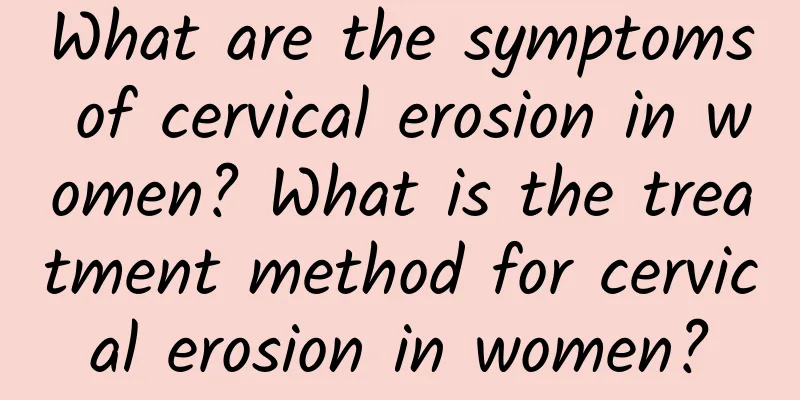What are the causes of uterine fibroids? How to use medication for uterine fibroids

|
What are the causes of uterine fibroids? This has aroused widespread concern among patients. Only by understanding the causes of uterine fibroids can the disease be correctly diagnosed and treated. What are the causes of uterine fibroids? The following is an analysis by experts to see which factors are the culprits of uterine fibroids. Causes of uterine fibroids: 1. Gynecological fibroid tissue is acted upon by progesterone and estrogen receptors, and its density exceeds that of the surrounding normal muscle tissue. ER and pR change with the menstrual cycle, and there are reports that the application of exogenous hormones and clomiphene after uterine fibroids will increase. Inhibiting or reducing sex hormone levels can prevent fibroid growth, reduce fibroids, and improve clinical symptoms, indicating that fibroids are sex hormone-dependent tumors. The application of antagonistic hormone drugs can treat fibroids, but there is no significant difference in blood sex hormones around fibroid patients and women without fibroids. This suggests that the occurrence of fibroids is related to abnormal local endocrine environment rather than the hormonal environment of fibroid patients. If the estrogen concentration in fibroids is higher than that in uterine muscles; endometrial hyperplasia is higher than that near fibroids. The same is true for receptor status, and the E2R (estradiol receptor) and pR of fibroids are higher than those of uterine muscles. 2. Generally speaking, uterine fibroids are mainly caused by the immaturity of smooth muscle cells in the uterine muscle and vascular wall, but the latter has no clear concept in histology. Small uterine fibroids that have not grown for a long time are not only rich in mature myofibril smooth muscle cells, but also found in immature smooth muscle cells seen in the fetal uterus. This suggests that the occurrence of human uterine fibroids may come from the differentiation process of undifferentiated mesenchymal cells to smooth muscle cells. Multiple uterine fibroids may be due to the origin cells lurking in the myometrium. Mesenchymal cells are the original cells of myomas and are cells with multi-differentiation functions in the embryonic period. They have biological media, rely on estrogen for proliferation, and rely on progesterone for differentiation and hypertrophy. After entering sexual maturity, the undifferentiated mesenchymal cells and immature smooth muscle cells remaining in the myometrium undergo their own continuous proliferation, differentiation and hypertrophy process under the action of estrogen and progesterone cycles, and repeat for a long time until myomas are formed. |
<<: What are the causes of uterine fibroids and what are the treatment drugs for uterine fibroids?
>>: What are the main causes of uterine fibroids? What are the main causes of uterine fibroids?
Recommend
Symptoms and treatment of congenital absence of vagina
We all know that congenital absence of vagina wil...
What are the consequences of cervical erosion?
What are the common consequences of not treating ...
What causes bleeding and pain during ovulation?
Bleeding and pain during ovulation are usually ca...
Can ovarian cysts be cured?
Can ovarian cysts be cured? Malignant ovarian cys...
Experts say that symptoms of cervical erosion need to be watched out for
What are the symptoms of cervical erosion? Althou...
What to do if you have chest pain after miscarriage
What to do if you have chest pain after miscarria...
Comparison of treatments for trichomoniasis and bacterial vaginosis
According to the various causes of vaginitis, it ...
Is it expensive to treat congenital absence of vagina?
Experts say that congenital absence of vagina is ...
Can Bartholinitis affect life expectancy?
Bartholinitis rarely occurs in children of childb...
Why does my period last more than ten days but still not end? There are usually three reasons
If menstruation has not ended after more than ten...
Tell you how to treat cervical hypertrophy
Cervical hypertrophy is a common gynecological di...
What is the process of medical abortion? There are 5 steps in medical abortion.
Medical abortion is a method of abortion chosen b...
Nursing record of hyperprolactinemia
How to care for and treat hyperprolactinemia? Hig...
What to do if you have threatened miscarriage
Every woman wants to have a healthy and smart bab...
Does painless abortion mean only suctioning out the gestational sac without curettage?
Painless abortion does not mean only suctioning t...









